Table of Contents
What Is a Fulfillment Center? The Ultimate Guide
Time: Oct 24,2024 Author: SFC Source: www.sendfromchina.com
In today’s fast-paced eCommerce landscape, efficient order fulfillment is essential for success. A fulfillment center plays a crucial role in streamlining logistics, ensuring that businesses can deliver products quickly and accurately to their customers. Whether you’re a small business looking to expand or a large retailer aiming to improve operations, understanding the ins and outs of fulfillment centers is vital.
In this ultimate guide, we’ll dive deep into what fulfillment centers are, how they work, and why they’re integral to the success of your eCommerce business. From reducing shipping costs to scaling your operations, discover everything you need to know to optimize your supply chain and enhance customer satisfaction.
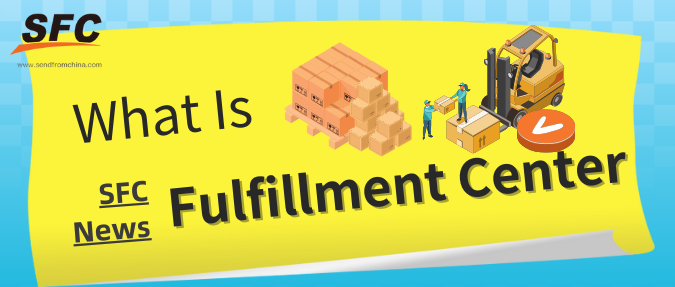
1. What Is a Fulfillment Center
A fulfillment center is a physical warehouse where goods are stored, processed, and shipped to customers on behalf of businesses, particularly in the eCommerce sector. These centers are designed to handle the entire fulfillment process, from inventory management to packaging and shipping orders.
The primary goal of a fulfillment center is to streamline the logistics operations for businesses so that they can focus on sales, marketing, and customer engagement while the fulfillment center takes care of the supply chain and delivery logistics.
Key Functions of a Fulfillment Center
Inventory Management: Products are stored and organized systematically.Order Processing: When an order is placed, the fulfillment center picks, packs, and ships the items.
Shipping and Delivery: Fulfillment centers coordinate with carriers to ensure timely delivery of products.
Returns Handling: Some fulfillment centers manage product returns and exchanges as part of their service.
Fulfillment centers are pivotal in ensuring that online retailers can deliver products to customers in a fast and cost-effective manner. With eCommerce booming, the demand for fulfillment services has risen exponentially.
2. How Does a Fulfillment Center Work
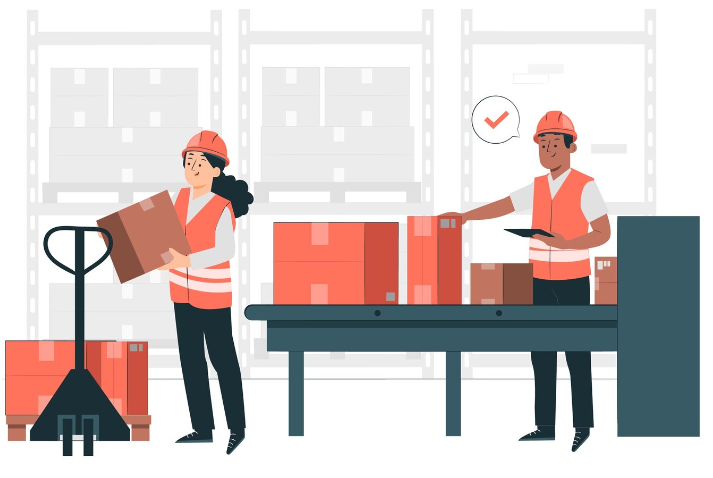
To better understand how fulfillment centers operate, it’s essential to break down the fulfillment process step by step.
Step 1: Receiving Inventory
Businesses ship their products to the fulfillment center, where they are carefully received, checked, and stored. The inventory is recorded in the fulfillment center's warehouse management system (WMS), ensuring accuracy and real-time tracking.
Step 2: Storage
Products are stored in designated areas, such as bins, shelves, or pallets, depending on their size and type. Efficient storage is crucial for minimizing picking time when orders are placed.
Step 3: Order Processing
Once a customer places an order on an eCommerce website, the fulfillment center receives the order through integration with the business’s online platform. The WMS automatically assigns the location of the products, and the order is picked by the staff or robots, depending on the sophistication of the facility.
Step 4: Picking and Packing
The order is picked from the storage location and packed in appropriate packaging materials to ensure it reaches the customer in perfect condition. Depending on the nature of the items, packing might include bubble wrap, boxes, or special containers.
Step 5: Shipping
After the order is packed, the fulfillment center coordinates with various carriers (like UPS, FedEx, DHL) to ship the product. Tracking information is provided to both the business and the customer.
Step 6: Returns Processing
Some fulfillment centers offer reverse logistics, which means they handle product returns, inspect them for quality, and either restock or dispose of them as per the retailer’s instructions.
3. Why Do Fulfillment Centers Play an Important Role in Ecommerce Logistics
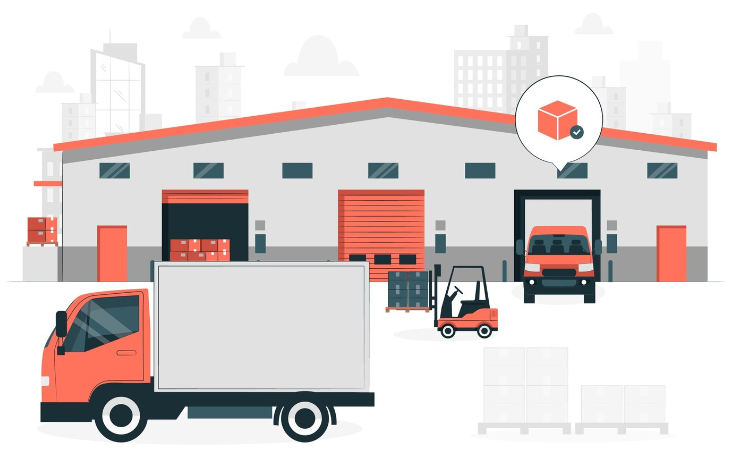
Fulfillment centers are the backbone of eCommerce logistics. They act as the critical link between a business and its customers, ensuring that the products ordered online are delivered efficiently and accurately.
Faster Delivery
Fulfillment centers, especially those strategically located in different regions, enable faster shipping times. By storing inventory close to customers, they reduce the distance products need to travel, speeding up delivery.
Scalability
For eCommerce businesses, scaling operations to meet increasing demand can be challenging. Fulfillment centers offer scalability, allowing businesses to grow without needing to worry about warehousing or shipping logistics.
Cost Savings
Operating a self-managed warehouse requires substantial investment in infrastructure, staff, and technology. Fulfillment centers offer cost-effective solutions by pooling resources across multiple clients, thus driving down costs.
Streamlined Operations
By outsourcing logistics to a fulfillment center, businesses can focus on core operations such as marketing, product development, and customer service. The fulfillment center takes care of the heavy lifting, allowing for smoother day-to-day operations.
4. Pros and Cons of Fulfillment Centers
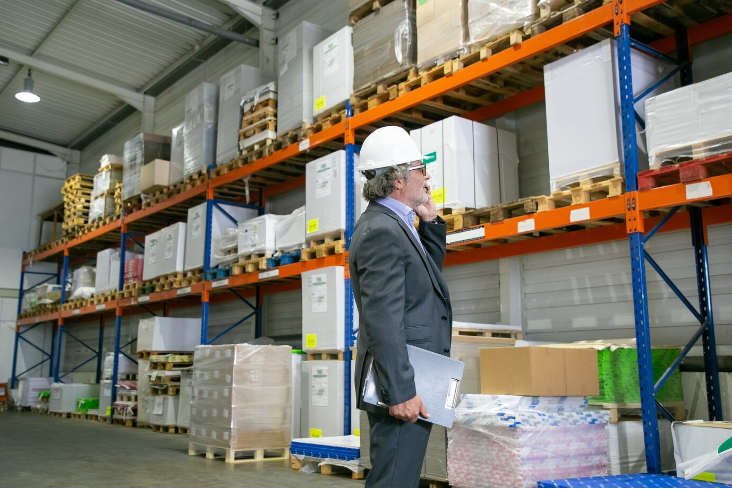
While fulfillment centers provide numerous benefits, they are not without drawbacks. Here’s a balanced view of the advantages and disadvantages:
Pros
Increased Efficiency: Outsourcing order fulfillment allows businesses to focus on their core activities while ensuring fast and efficient deliveries.Lower Shipping Costs: Due to bulk shipping rates, fulfillment centers often provide lower shipping costs.
Scalability: Businesses can easily scale up or down based on demand without investing in warehouse space or additional staff.
Expertise: Fulfillment centers are staffed with logistics professionals, which reduces the risk of errors in order processing and shipping.
Cons
Loss of Control: Outsourcing means relinquishing direct control over the fulfillment process, which can be difficult for some businesses to manage.Upfront Costs: For small businesses, the initial cost of partnering with a fulfillment center can be significant, although it may pay off in the long run.
Communication Issues: Working with a third-party logistics provider can sometimes lead to miscommunication, delays, or errors if not properly managed.
5. Are Fulfillment Centers Reliable?
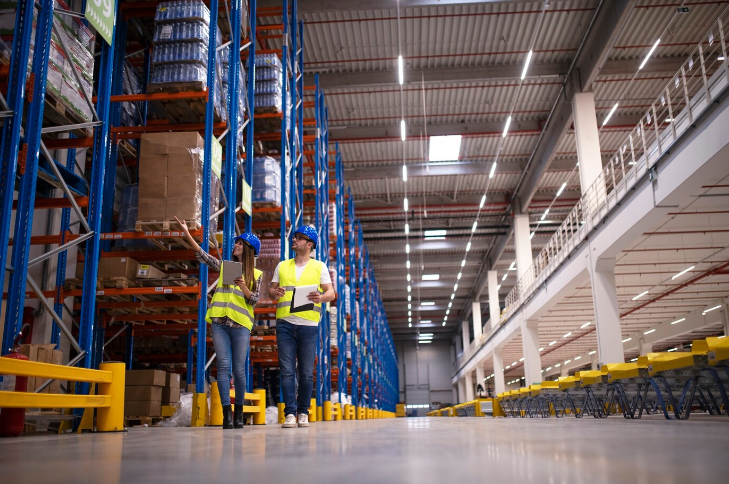
Reliability is one of the top concerns for any business considering using a fulfillment center. The truth is, fulfillment centers can be extremely reliable when chosen wisely and managed effectively.
Key Factors that Ensure Reliability
Technology Integration: Many fulfillment centers utilize advanced warehouse management systems to automate inventory tracking and order processing. It minimizes errors and ensures accuracy.Carrier Partnerships: Fulfillment centers work with established shipping carriers, which enhances the likelihood of timely and safe deliveries.
Real-Time Data: Through technology, businesses can monitor their inventory levels, order statuses, and delivery tracking in real-time, providing transparency and control.
Reliability is closely tied to the fulfillment center’s ability to handle volume, maintain accuracy, and offer customer support. Partnering with a reputable center is crucial for success.
6. Challenges for Fulfillment Centers
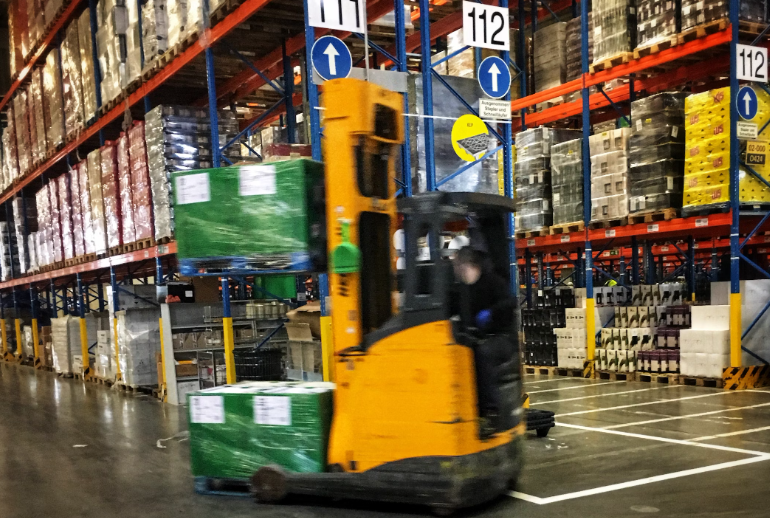
Fulfillment centers face various challenges, particularly as the demand for their services grows. Some of the key challenges include:
Handling Seasonal Demand
During peak seasons, such as Black Friday or Christmas, fulfillment centers experience high order volumes, which can strain their capacity.
Managing Returns
Handling returns efficiently can be difficult, especially for centers managing large inventories. Without a robust return process, businesses may face delays or dissatisfied customers.
Labor Shortages
In certain regions, fulfillment centers face labor shortages, which can affect order processing times and shipping delays.
Maintaining Technology
Fulfillment centers rely heavily on technology for automation and inventory management. A system failure or outage can have significant ramifications for operations.
7. Why You Should Consider Partnering with a Fulfillment Center
If you run an eCommerce business, partnering with a fulfillment center can provide a host of advantages that will help streamline your operations.
Benefits of Partnering with a Fulfillment Center
Access to Expertise: Fulfillment centers are specialists in logistics, which means they can handle the complexities of warehousing, shipping, and returns more efficiently than most businesses can manage in-house.Cost Efficiency: By leveraging a fulfillment center’s existing infrastructure, businesses can save on costs related to warehouse rental, labor, and equipment.
Faster Shipping: With multiple fulfillment centers in different locations, businesses can achieve faster shipping times, which is crucial for customer satisfaction.
Focus on Growth: Outsourcing logistics allows businesses to focus on growth strategies, such as expanding their product range or entering new markets.
8. How to Find Reliable Fulfillment Centers

Finding a reliable fulfillment center for your business requires careful research and consideration. Here are some steps to guide you:
Determine Your Needs
Assess your current inventory, shipping volume, and customer base. Knowing what you need will help you choose a fulfillment center that can handle your specific requirements.
Evaluate Technology
Make sure the fulfillment center uses up-to-date technology that integrates with your eCommerce platform. This will ensure seamless order processing and inventory tracking.
Check Location
Choose a fulfillment center located near your customer base to reduce shipping times and costs. The closer the center is to your customers, the faster they will receive their orders.
Review Contracts
Read the contract terms carefully, paying attention to fees, minimum order requirements, and any service guarantees. Understanding the fine print can save you from unexpected charges later.
Ask for References
Request testimonials or references from current clients of the fulfillment center. This will give you insights into the center's reliability and customer service.
9. FAQs
1. What is the difference between a fulfillment center and a distribution center?
Fulfillment centers focus on picking, packing, and shipping products directly to customers, while distribution centers typically serve as hubs for storing products that will be sent to retailers or other businesses.
2. Can a fulfillment center handle international shipping?
Yes, many fulfillment centers offer international shipping services, but it's important to verify their capabilities and ensure they meet the necessary regulatory requirements for cross-border trade.
3. How do fulfillment centers charge for their services?
Fulfillment centers usually charge for services based on storage fees, picking and packing fees, and shipping costs. Some centers may also have additional charges for returns processing or special handling requests.
4. How quickly do fulfillment centers process orders?
Order processing times can vary depending on the fulfillment center, but most centers aim to process and ship orders within 24 hours of receipt.
5. Can I track my inventory in real-time with a fulfillment center?
Yes, many fulfillment centers provide businesses with access to real-time inventory tracking through their warehouse management systems (WMS).
 Post Views:4021
Post Views:4021
Copyright statement: The copyright of this article belongs to the original author. Please indicate the source for reprinting.
Previous Post
Next Post
TAGS
Hot Research
Get a Custom China Fulfillment Solution with FREE Storage for 30 Days
 Want to know about our services, fees or receive a custom quote?
Want to know about our services, fees or receive a custom quote?
 Please fill out the form on the right and we will get back to you within a business day.
Please fill out the form on the right and we will get back to you within a business day.
 The more information you provide, the better our initial response
will be.
The more information you provide, the better our initial response
will be.





 TAGS:
TAGS: